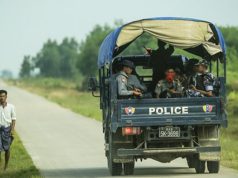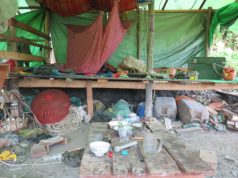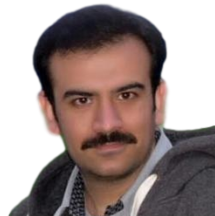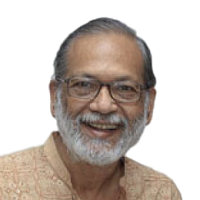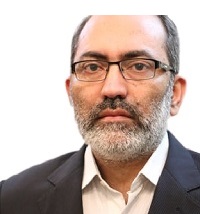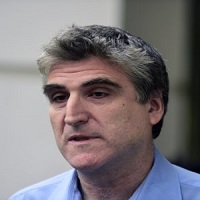(Exclusive): China, India and Thailand are all carefully watching Myanmar’s stalled peace process. All these neighbours understand that only a truly genuine peace settlement will guarantee reconciliation, stability and development in the border areas adjacent to these countries. Beijing and Bangkok are also actively endorsing the process, while Delhi remains more cautious in its support.
Talks in the Wa autonomous region last week between some of the key armed groups who have not signed the National Ceasefire Agreement (NCA) – signed by eight other ethnic groups in October 2015, when Thein Sein was president – ended with the groups demanding a new path to peace.
Leaders from seven ethnic militias – known as none signatures — including the Kachin Independence Organization (KIO), the Shan State Army-North (SSA-N), the Myanmar National Democratic Alliance Army (MNDAA) or Kokang and the Ta’ang National Liberation Army (TNLA), attended the three-day conference.
They issued a joint nine-point pledge, which included not signing the NCA at this time and exploring other ways to forge peace. This puts the government’s planned peace conference – tentatively scheduled for mid-March, after already being delayed – in increasing doubt.
Myanmar’s civilian leader – State Counselor Aung San Suu Kyi and the army chief Senior General Min Aung Hlaing have insisted that only the ethnic groups that sign the NCA will be allowed to participate in the second round of the peace conference — dubbed the 21st Century Panglong, after the historic meeting between General Aung San and several ethnic leaders in 1947, which committed the country to a federal state.
Now the Lady — as she is known in the country, especially amongst the military – faces a major dilemma: whether to press on with the conference with only signatures, find a way to include all the ethnic groups, or postpone the meeting until later in the year. “This has been the crucial issue all along,” said Martin Smith – a British writer and internationally renowned expert on Myanmar’s ethnic groups and their struggle for autonomy. “The lessons from failures in the past to bring about peace, is the key is listening and inclusion, not self-interest and exclusion.”
“Ceasefires have existed in the country since 1989, but ceasefires are not the same as peace, either locally or nationwide,” said Martin Smith. To achieve that, a political settlement is needed, involving all the ethnic armed groups. But the current danger is that Aung San Suu Kyi, egged on by the military, may opt to press on with only those who have signed the NCA. This would kill any remaining trust the non-signatories ethnic groups have in the Lady – which is waning fast — and would stall any further progress in the peace process.
International advisors and regional envoys are all trying to help salvage the process. But the Myanmar government’s key advisor, Jonathan Powell – who was of the architect of the Good Friday agreement in Northern Ireland under the British Prime Minister, Tony Blair – has been reportedly pushing the government to press on with those groups that have signed up and leave the others aside, according to western diplomats in Yangon who are familiar with the process.
This would be very short sighted and would strengthen the military’s control of the peace process, which would certainly alienate the ethnic groups – signatories and non-signatories alike. It would further delay any efforts to end the hostilities in the ethnic areas in the north and east of the country. Recently the military launched military attacks on the Mon liaison offices in the south east of the country. The New Mon State party are also non-signatures to the NCA. Clearly this limited offensive was intended to pressure the Mon into signing the NCA.
But it was quickly halted after the quiet intervention of the Thais, after more than a thousand Mon refugees immediately fled the fighting, across the border to Thailand – their usual escape route in the past. The Thai army immediately closed the border, and warned the Mons they were not welcome in Thailand. Border meetings between the Thai army and Myanmar counterparts, quickly resolved the tension.
Thailand has been supporting the peace process in the past few years, behind the scenes. The Karen and the Shan (Restoration Council of Shan State) under General Yerk Serk signed the ceasefire agreement 1 October 2015. In the past they had to rely on informal relations with the Thai army to maintain their supply routes and some strategic deployments. Both Karen and Shan sources, on condition of anonymity, have confirmed that their Thai military contacts encouraged them to sign the NCA.
There has been a strategic shift in Thailand’s military vision for the border with Myanmar. In the past, fearful of the Myanmar army, were keen to use the ethnic groups along the long eastern border as a “buffer zone”. But the thinking has changed, a former Thai military officer told me. “We no longer need a buffer,” he said.
But China could be the real key to ending the fighting in the north as many of the ethnic groups there are allied with elements in southern China, especially Yunnan. Recent talks between Chinese and Myanmar military and diplomats in Naypyidaw have shown a measure of unity between the two governments’ approach. Both Aung San Suu Kyi and Min Aung Hlaing have not been coy in trying to elicit Chinese support for the peace process. Until recently Beijing and Yunnan have been cautiously supportive.
Now Beijing is fully behind the Panglong process and has been encouraging the ethnic groups under their influence to sign the NCA. The Wa and Mongla group, according to Myanmar military sources, were going to sign the NCA after Chinese encouragement. They also expected the wayward groups – the Kokang (MNDAA), TNLA and the AA (Arakan Army) – the latter many believe are the creation of the Chinese, receiving their arms and supplies from China, and have recently opened a liaison office in the southern Chinese city of Kunming.
Now these hopes seem to have been dashed, at least for the time being, and have perhaps scuttle the peace process altogether. Perhaps Myanmar’s neighbours need to intervene more actively, but in unison to help the Lady make the peace process and the planned Panglong conference inclusive, thereby saving it from ending in disaster – renewed civil war.
Larry Jagan is a journalist and Myanmar specialist, based in Yangon. He is also the author of several books and many academic articles on Myanmar. He has spent more than forty years covering the Asia region. He was Asia editor for the BBC World Service for more than a decade. This is Larry’s exclusive column for the Southasianmonitor.com



